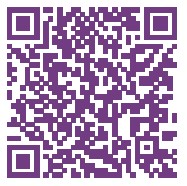The American Academy of Pediatrics just updated its recommendations to encourage moms to breastfeed for up to 2 years. This aligns with long-standing recommendations from the World Health Organization.
The AAP last issued guidelines in 2012, when it supported breastfeeding for “up to one year or longer.” The new guidance builds upon extensive research that both toddlers and nursing moms reap benefits from breastfeeding into the second year of life.
AAP recommends that moms breastfeed exclusively for the baby’s first six months and introduce other appropriate foods at that point. Moms can continue breastfeeding until the child turns 2 or even beyond if desired.
If you just thought, “Two years? I’m not sure I’ll last two weeks,” we’re here to help. Novant Health, accredited as a Baby-Friendly Hospital, has a strong lactation program through its Nursing Mother’s Place.

Weighing in on the updated guidelines is Dr. Annie Condon, a pediatrician at Novant Health Pediatrics Denver, and Danette Andersen, a lactation consultant at Novant Health Pediatrics Symphony Park in Charlotte. They also offered advice on how to breastfeed for longer than you may have planned.
Let’s start with the basics. Why breastfeed?
Condon: The benefits to baby are well-known. Breastfeeding helps regulate blood glucose, body temperature and heart rate in newborns. Breastfed babies also have decreased incidence of ear infections, head and neck infections, respiratory and GI infections, as well as eczema and allergies.
There are big benefits for mom, too. Breastfeeding reduces the amount of postpartum bleeding; the release of oxytocin during nursing causes uterine contractions. It helps with postpartum weight loss as moms can burn up to 1,000 calories a day when they breastfeed, including pumping. Women who breastfeed are also shown to have lower rates of breast, uterine and ovarian cancer, heart disease, and Type 2 diabetes.
Breastfeeding for two years, though, can be an intimidating prospect.
Condon: The AAP has always encouraged breastfeeding as long as it’s mutually beneficial and desired by the mother and baby. It’s a guideline that's been endorsed by the World Health Organization for decades.
Nowhere does it say moms have to breastfeed until the infant is 2 years old. Don’t let anyone make you feel guilty about what’s right for you. Maternal mental health is also important.
Andersen: A mom may decide breastfeeding her child for two years is overwhelming because she has to work, for example, or take care of other children at home. Another mom may decide she wants to breastfeed her child for two years. Both decisions are the right choice for their family. We are here to support and help them reach their breastfeeding goals regardless of the time frame.
What’s your advice for women who want to try breastfeeding longer than they originally planned?
Andersen: It is common for moms to set an initial goal of six months to one year since breast milk or formula is baby's primary source of nutrition for the first year of life. The AAP recommends exclusive breastfeeding to six months of age then introducing solids.
Moms who set an initial goal of six months may realize it’s easier now that baby is not eating as often or as long. So, they may choose to continue breastfeeding. Moms who return to work, or have trouble maintaining their milk supply, may decide it is time to wean.
If mom wants to continue breastfeeding or pumping up to two years, she can maintain her milk supply – in most cases – by how often she breastfeeds or pumps. Breastfeeding an older child isn't the same as breastfeeding a newborn. The frequency and length is less, perhaps only twice a day, so it may feel less overwhelming. There is no right or wrong when it comes to breastfeeding since adjusting the feeding plan can look different for each mom based on her lifestyle.
For moms who return to work, pumping at work when away from baby is essential in protecting her milk supply. Most insurance companies will provide mom with a breast pump or an allowance towards a breast pump. When mom is home with baby, she can resume exclusive breastfeeding if desired. We recommend starting to pump and store breast milk by the time the baby is four weeks old in preparation for a return to work. When baby is sleeping longer stretches at night, mom can protect her milk supply by pumping before she goes to bed rather than going too long between feedings.
How often a mom chooses to breastfeed or pump in the second year is a personal choice. We are here to help guide and support her during this time.
Can a mom boost her milk supply through her diet?
Condon: While there are prescription medications known to increase milk production, such as Metoclopramide, they should really be considered a last resort. I don't often prescribe them since the best way to encourage milk supply is to breastfeed or pump at regular intervals.
Andersen: Some moms enjoy making lactation cookies or smoothies with oats, green leafy vegetables, fruits and herbs to help boost their milk supply. That said, every woman is different in how their body will respond to foods or herbs known to boost milk production. Often, it's trial and error to see what works for them.
Some women have success with herbal galactagogues, a combination of different herbs taken in pill form, such as:
- Alfalfa.
- Anise.
- Black seed.
- Fennel.
- Goat's rue.
- Milk thistle.
- Mooring.
- Nettle.
- Shatavari.
As always, mom should check with her doctor before starting a new supplement to make sure it won't interact with other medications.
Can a mom breastfeed if she’s pregnant?
Andersen: Yes, she can breastfeed during pregnancy unless advised otherwise by her ob-gyn. For example, it's not advised during a high-risk pregnancy.
Her milk supply during pregnancy may decrease due to a shift in hormones. Some babies may refuse to breastfeed if the supply decreases and as the milk changes to colostrum and tastes different. Other babies may continue to breastfeed without interruption.
If a baby is not breastfeeding well due to a decrease in supply, a change in the taste of the milk, or both, we recommend pumping to protect the milk supply if mom desires to continue. However, we would not recommend taking herbal supplements since she is pregnant.
Any other advice?
Andersen: Having children is a beautiful chapter in life, but one that also has its challenges. How long a mother chooses to breastfeed, pump, or even feed or supplement with formula, is a personal choice. And it's a decision I'm honored to help advise on. Families should feel empowered to ask questions and make a decision that's best for them.
What will it take to make breastfeeding up to two years easier in the U.S.?
Condon: We have one of the worst maternity leaves of all the industrialized nations. A lot of northern European nations have yearlong maternity leaves. Many central European countries have paid six-month maternity leaves. In other areas of the world where water is not safe to drink, mothers have always been encouraged by the World Health Organization to breastfeed at least until age 2.
I see a lot of moms in my practice who have six-week unpaid maternity leave. I would love to see a change in our work culture that better supports breastfeeding moms. We need to start looking at how this country addresses maternity leave to ease mom’s ability to breastfeed longer if she wants to.

Join us for Baby Café
Baby Café is a free group that provides support for each mom’s breastfeeding journey. Sessions are open to community members who are pregnant or breastfeeding, and attendees can drop in at any time during the sessions. You’re invited to meet with other parents, ask questions with lactation specialists, socialize and share tips.
Novant Health provides:
- Professional lactation support staff
- Refreshments
- Infant weight check
No registration is required and parking is free. Childcare is not provided but babies, siblings and spouses are welcome.
Novant Health Baby Café locations
Bolivia
Novant Health OB/GYN with Brunswick Medical Center
584 Hospital Drive, Suite B
Bolivia, NC 28422
Time: Tuesdays, 11 a.m. to noon
For more information, call 910-512-2064
Charlotte
Novant Health Presbyterian Medical Center
200 Hawthorne Lane
Charlotte, NC 28204
Time: Tuesdays, 11 a.m. to 12:30 p.m.
Park in the parking deck of Novant Health Presbyterian Medical Center. Parking validation will be provided during the cafe. Take the elevator in the parking deck to the first floor to enter the hospital. Once inside, take the Women's Center elevators located behind the check-in desk to the eighth floor. The Baby Café location is behind the security desk.
For more information, call 704-384-7515
Kernersville
Kernersville Medical Center
1750 Kernersville Medical Pkwy
Kernersville, NC 27284
Time: Wednesdays, 10-11:30 a.m.
Enter through the main entrance of Kernersville Medical Center. Baby Café takes place on the fourth floor.
For more information, call 336-564-4071
Mint Hill
Novant Health Mint Hill Medical Center
8001 Healthcare Loop
Charlotte, NC 28215
Time: Tuesdays, 11 a.m. to 12:30 p.m.
Enter the main entrance of Novant Health Mint Hill Medical Center. Baby Café will be held in Community Room No. 2 on the first floor.
For more information, call 704-384-7515
SouthPark
Novant Health Breastfeeding - SouthPark
6324 Fairview Road, Suite 470, fourth floor conference room
Charlotte, NC 28210
Time: Thursdays, 11 a.m. to 12:30 p.m.
For more information, call 980-302-8835.
Thomasville
Novant Health Wellness and Education
203 Old Lexington Road
Thomasville, NC 27360
Time: Mondays, 10:30 a.m. to 12:30 p.m.
For more information, call 336-474-3253
Winston-Salem
Novant Health Community Education Room
3330 Healy Drive, Suite 102
Winston-Salem, NC 27103
Time: Thursdays
Morning in-person group: 9 a.m. to 11:30 a.m.
Virtual group: 12:30-1:30 p.m.
Afternoon in-person group: 2:30-5 p.m.
For more information, call 336-718-5636

Baby Cafe is a nationwide breastfeeding support organization. For more information, visit their website here.













